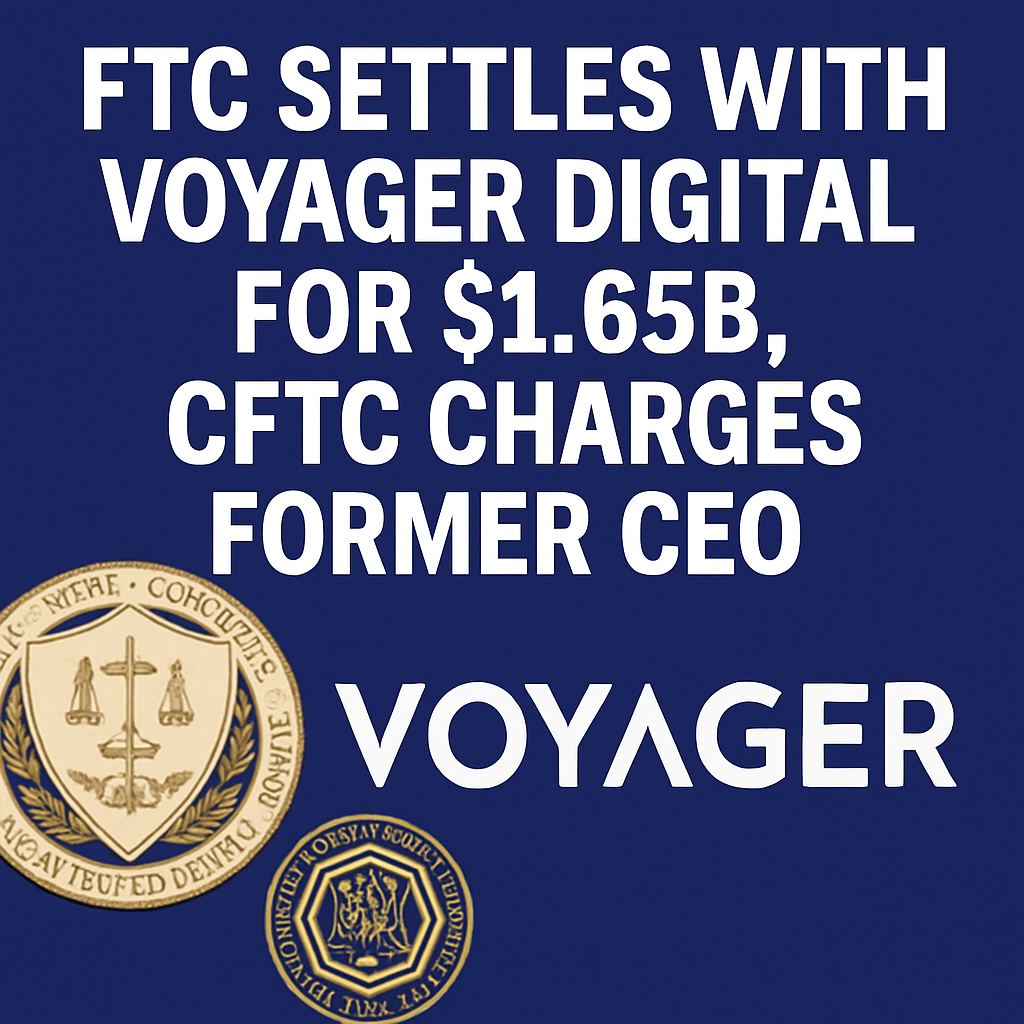FTC Settlement with Voyager Digital
On October 12, the U.S. Federal Trade Commission announced a settlement agreement requiring Voyager Digital and affiliated entities to pay $1.65 billion in consumer redress. The settlement follows allegations that Voyager misrepresented U.S. dollar holdings as FDIC-insured and promised safety of customer deposits despite exposure to high-risk third-party lending. The FTC complaint asserted that marketing materials and promotional campaigns induced customers to convert crypto assets into USDC based on false assurances of federal insurance protection.
CFTC Fraud Charges Against Former CEO
On the same day, the U.S. Commodity Futures Trading Commission filed charges against Steven Ehrlich, former Voyager CEO, alleging fraud, failure to register as a commodities pool operator and unregistered commodity interest solicitation. The CFTC filing detailed instances of excessive risk-taking with customer assets and continued false representations regarding financial health even after signs of mounting losses. The CFTC complaint seeks civil monetary penalties and permanent trading bans.
Bankruptcy Context and Creditor Implications
Voyager’s Chapter 11 proceedings began in mid-2022 with over $1 billion of customer assets deemed unredeemable. Under the settlement terms, payment obligations will commence only after distribution of bankruptcy estate assets to valid creditor claims. FTC rules will prohibit future offerings of deposit, lending, or advertising of any consumer financial product without express regulatory approval.
Consumer Protection and Industry Impact
Regulatory actions against Voyager mark a significant enforcement milestone in the crypto sector, reflecting heightened scrutiny of marketing practices and reserve transparency. The combined FTC and CFTC actions underscore a coordinated approach by financial regulators to address consumer harm and misconduct. Observers anticipate that policy developments and enforcement precedents will heighten compliance requirements across lending platforms and stablecoin issuers.
Analyst and Stakeholder Reactions
Legal experts noted that settlement magnitude exceeds previous crypto enforcement cases and signals escalating penalties for misleading disclosures. Industry participants expressed concerns regarding capital adequacy and operational resiliency of remaining lenders. Advocacy groups welcomed the outcome as a step toward restoring investor confidence and reinforcing market integrity.
Settlement Provisions and Future Oversight
Key settlement provisions include a ban on FDIC-style insurance claims, restrictions on lending product advertisements, and mandatory submission of future marketing materials for regulatory review. The FTC will retain authority to review compliance and impose additional sanctions for violations. The CFTC case will proceed through administrative litigation, with potential for negotiated resolutions or adjudication.
Broader Regulatory Implications
Voyager actions illustrate an evolving enforcement landscape where federal agencies leverage existing statutes to regulate emerging digital asset business models. The FTC and CFTC coordination may serve as a template for future actions against platforms accused of consumer or market abuses. Enhanced transparency standards, reserve audits and mandatory disclosures are expected to become standard industry practices.

Comments (0)